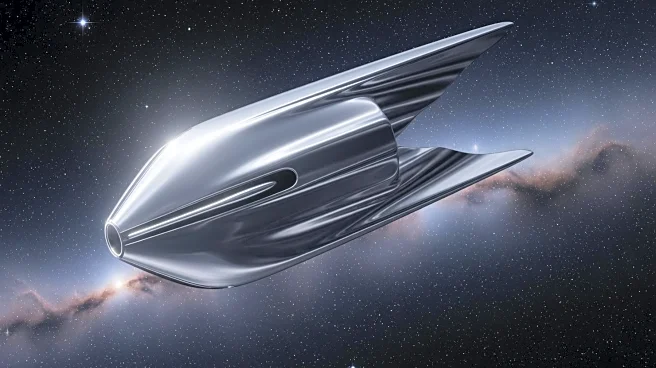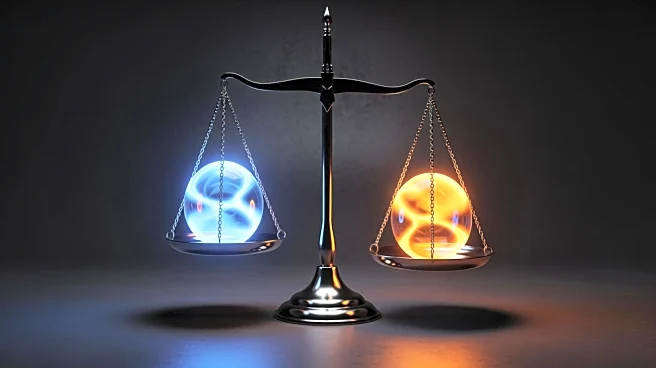What's Happening?
Recent observations of the interstellar comet 3I/ATLAS have led Harvard scientist Avi Loeb to propose that the comet may be of artificial origin. Images captured by the Nordic Optical Telescope show the comet remaining
intact after its perihelion passage, which is unusual for a natural comet. Loeb argues that the comet's large jets suggest a mass loss rate too high for a natural comet of its size to remain intact. He speculates that the comet's jets could be technological thrusters pointing their exhaust towards the Sun, allowing it to accelerate away from the Sun. Despite Loeb's claims, other experts, such as Michigan State University astronomy professor Darryl Seligman, maintain that 3I/ATLAS is exhibiting natural cometary behavior.
Why It's Important?
The debate over the nature of 3I/ATLAS highlights the ongoing interest in identifying potential extraterrestrial technology. If Loeb's hypothesis is correct, it could have significant implications for our understanding of interstellar objects and the possibility of alien technology. However, the majority of the scientific community remains skeptical, emphasizing the importance of rigorous analysis and evidence before drawing conclusions about extraterrestrial origins. The discussion also underscores the need for continued observation and study of interstellar objects to better understand their characteristics and origins.
What's Next?
Further observations and analyses are expected to continue as scientists seek to understand the true nature of 3I/ATLAS. The comet's behavior will be closely monitored to gather more data that could either support or refute Loeb's hypothesis. As the comet moves through the solar system, astronomers will use various telescopes and instruments to study its composition and behavior, potentially providing more insights into its origins.
Beyond the Headlines
The controversy surrounding 3I/ATLAS also touches on broader themes of scientific inquiry and the search for extraterrestrial life. It raises questions about how scientists interpret data and the role of speculation in scientific discourse. The discussion may influence future research priorities and funding for studies related to interstellar objects and the search for alien technology.









